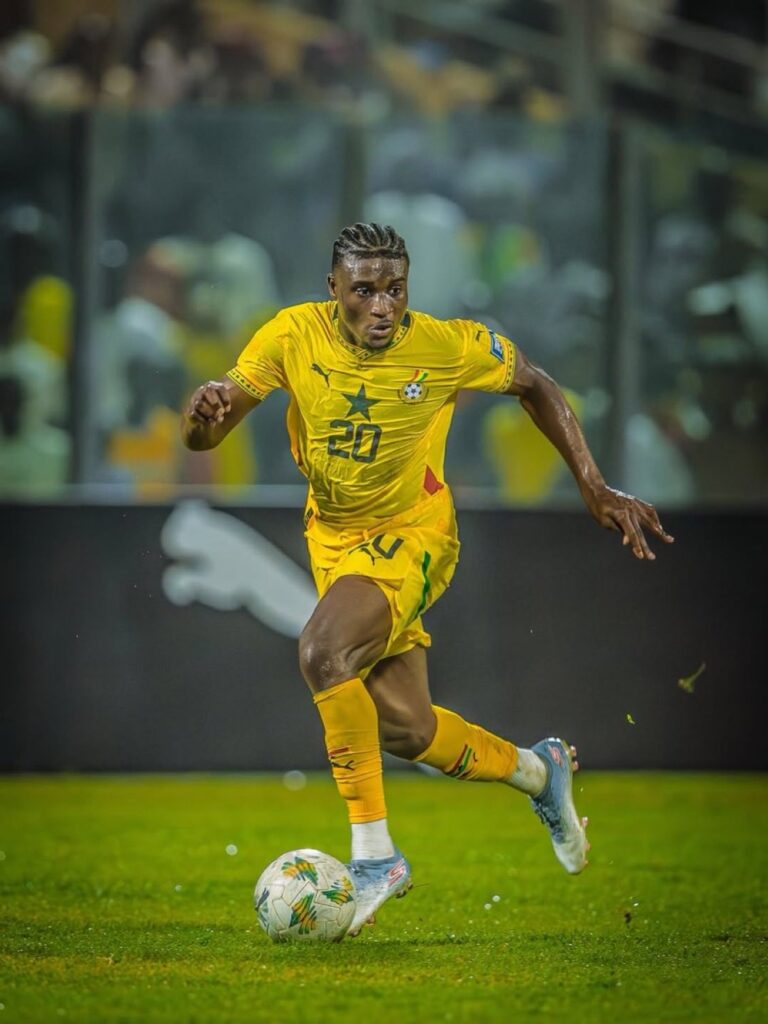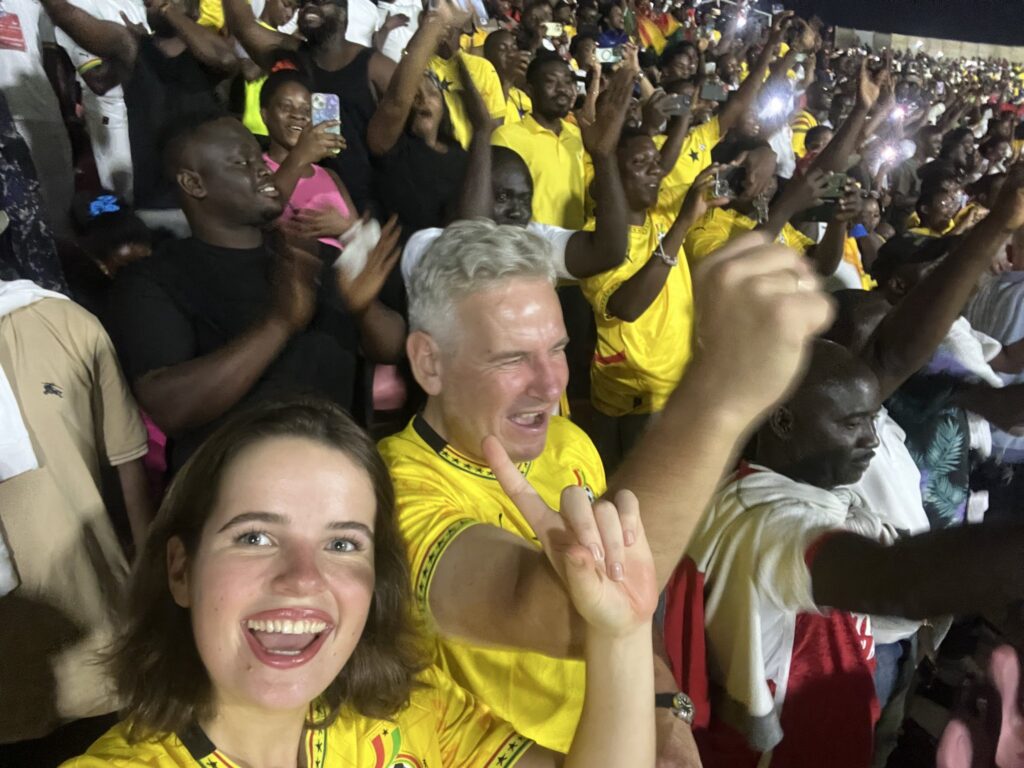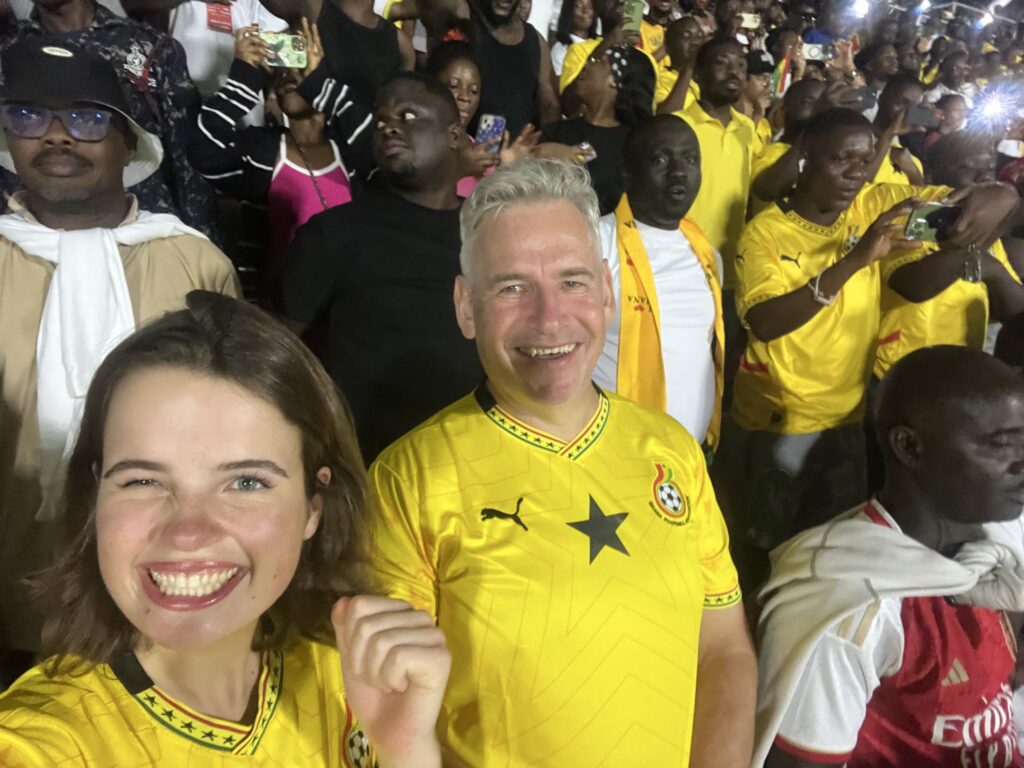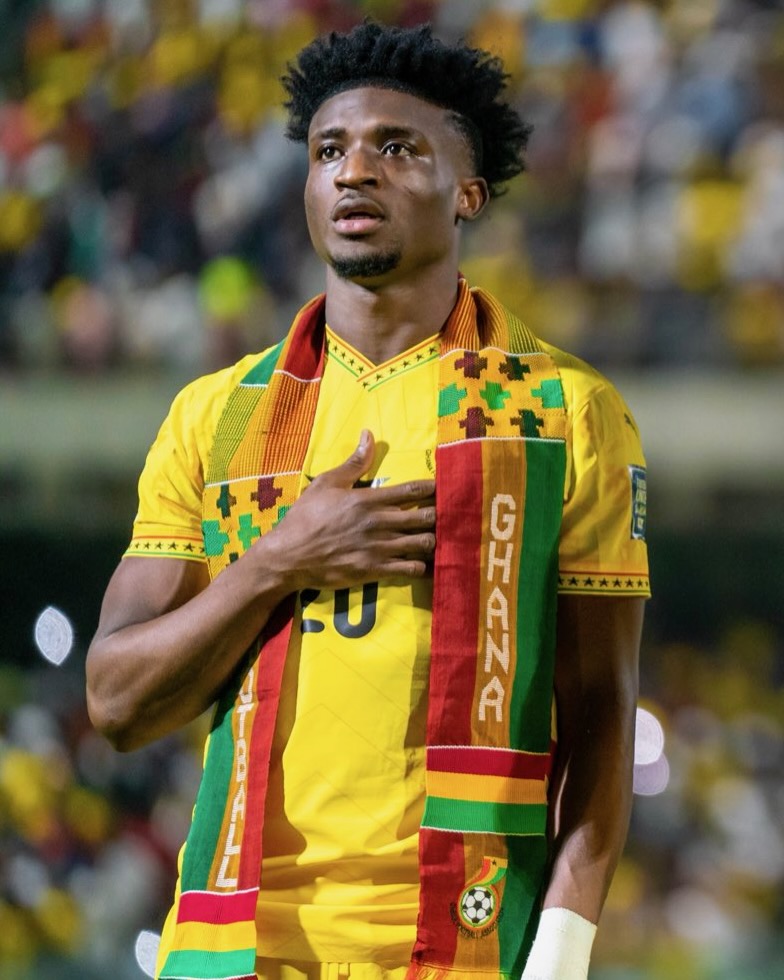Ghana has booked its place at the 2026 FIFA World Cup after a hard-fought 1–0 victory over Comoros at the Accra Sports Stadium, thanks to a decisive strike from star midfielder Mohammed Kudus. The win sealed the Black Stars’ top spot in Group I and confirmed their qualification for football’s biggest showpiece, set to take place in Canada, Mexico, and the United States.
The atmosphere in Accra was electric as fans packed the stands in anticipation of a historic night. Ghana needed only a draw to secure their passage, but they wanted to do it in style, and they did just that. The team’s determination, coupled with tactical discipline under coach Otto Addo, ensured that they undoubtedly crossed the finish line.
Kudus Delivers the Moment
The game began at a blistering pace, with Ghana asserting dominance from the outset. Comoros, a side known for its compact defending and counter-attacking ability, proved resilient in the early stages. Ghana’s midfield trio of Thomas Partey, Kudus, and Elisha Owusu dictated possession but struggled to break through a disciplined Comorian defense.
The breakthrough came just two minutes after halftime. A clever exchange on the right flank saw Partey thread a perfectly weighted pass into the box. Kudus, showing the composure and awareness that have made him a household name in European football, darted in between defenders and coolly slotted the ball past goalkeeper Ali Ahamada. The stadium erupted, with thousands of fans waving flags and singing in unison as the scoreboard flashed 1–0.
From that moment on, Ghana managed the game expertly. Their defense, marshalled by Daniel Amartey and Alexander Djiku, held firm, while goalkeeper Lawrence Ati-Zigi made a crucial save late in the match to preserve the lead. Kudus’s strike proved to be the difference, a goal that not only sealed victory on the night but also etched his name in Ghana’s football history books.

A Campaign of Grit and Growth
Ghana’s journey to the 2026 World Cup qualification has been far from straightforward. The Black Stars began their qualifying campaign with mixed results, including a narrow draw away to Madagascar and a hard-earned win over Mali. However, as the group progressed, Ghana found its rhythm. They finished the campaign unbeaten at home, reaffirming their dominance on Ghanaian soil, a record that stretches back over two decades.
Throughout the qualifiers, Kudus emerged as Ghana’s talisman. The West Ham United forward scored six goals and provided several assists, often stepping up when the team needed him most. His performances earned praise not just from Ghanaian fans but from across the continent, where many see him as one of Africa’s brightest stars.
The Black Stars also benefited from the leadership of Thomas Partey, who anchored the midfield with maturity and calmness. Young talents like Ernest Nuamah and Antoine Semenyo added attacking spark, while veteran defenders ensured experience and composure in key moments.
By the final matchday, Ghana had amassed 25 points from 10 matches, finishing ahead of Madagascar (19 points) and Mali (18 points). The victory over Comoros merely confirmed what had been a consistent and determined qualifying campaign.
Redemption for Otto Addo
For head coach Otto Addo, qualification represents redemption and vindication. After Ghana’s disappointing failure to qualify for the 2025 Africa Cup of Nations, the pressure on Addo was immense. Critics questioned his tactics, player selections, and in-game management. But throughout the World Cup qualifiers, Addo remained focused, emphasizing patience, team unity, and gradual progress.
Following the final whistle in Accra, Addo was visibly emotional. In his post-match remarks, he praised his players’ discipline and resilience. “We knew what was at stake, and we delivered. It wasn’t just about qualification; it was about pride, about belief, and about showing that Ghana belongs on the world stage,” he said.
His words resonated deeply with fans, many of whom have long associated the national team with moments of heartbreak and glory. The triumph felt like a renewal of faith, a reminder that Ghana, when united, can conquer any challenge.
A Nation Celebrates
Across Ghana, celebrations erupted as news of the qualification spread. Streets in Accra, Kumasi, Tamale, and Cape Coast were filled with jubilant fans waving the national flag and singing traditional songs. Car horns blared into the night as people danced and chanted Kudus’s name.
In Osu, a vibrant neighborhood in the capital, fans gathered around large screens to watch the match live. After the goal, scenes of pure joy followed: children on shoulders, people embracing strangers, and chants of “Black Stars! Black Stars!” echoing through the streets.
On social media, Ghanaian stars, including former internationals Asamoah Gyan, Michael Essien, and Andre Ayew, congratulated the team. President Nana Akufo-Addo also joined in, posting a message that read: “The Black Stars have done it again! Congratulations to the entire team and coaching staff. Ghana is going to the World Cup!”


History Beckons
The qualification marks Ghana’s fifth appearance at the FIFA World Cup, following successful campaigns in 2006, 2010, 2014, and 2022. Among those, the 2010 edition in South Africa remains the most memorable, when Ghana came within a penalty kick of reaching the semifinals before heartbreakingly falling to Uruguay.
That 2010 team inspired a new generation of players, many of whom now form the core of this squad. Kudus, Partey, and Djiku have all spoken about drawing inspiration from that golden era. With qualification secured, Ghana now aims to surpass its past achievements.
The 2026 World Cup will be unique, featuring an expanded 48-team format across North America. Ghana will be among the African nations flying the continent’s flag, alongside early qualifiers such as Egypt, Morocco, Tunisia, and Algeria.
Looking Ahead
Attention now turns to preparation for the global stage. The Ghana Football Association has already outlined plans for a series of high-profile friendly matches to strengthen the squad ahead of the tournament. Discussions are reportedly underway for warm-up games against Brazil, Japan, and the United States.
Coach Addo emphasized the importance of building depth and cohesion. “Qualifying is just the beginning,” he said. “We want to go to the World Cup not just to participate, but to compete and to make history again.”
Meanwhile, football analysts have praised the balance of Ghana’s squad, a mix of youthful energy and experienced leadership. Kudus, at 25, is expected to be one of the standout African players at the World Cup, while Partey’s experience in midfield will be vital.
The Ghanaian public’s expectations will undoubtedly be high, but the mood across the nation suggests optimism. The qualification has reignited national pride and belief in the Black Stars’ ability to shine once more on the global stage.
A Symbolic Victory
Beyond the footballing implications, Ghana’s qualification carries symbolic significance. It represents resilience, unity, and hope, values deeply embedded in the nation’s sporting culture. After enduring criticism, setbacks, and internal challenges, the Black Stars have once again proven their ability to rise when it matters most.
As the night drew to a close in Accra, fans continued to celebrate, chanting the name of their hero, Mohammed Kudus, whose single strike carried the dreams of a nation. It was not just a goal; it was a statement that Ghana, once again, stands among the world’s footballing elite.





